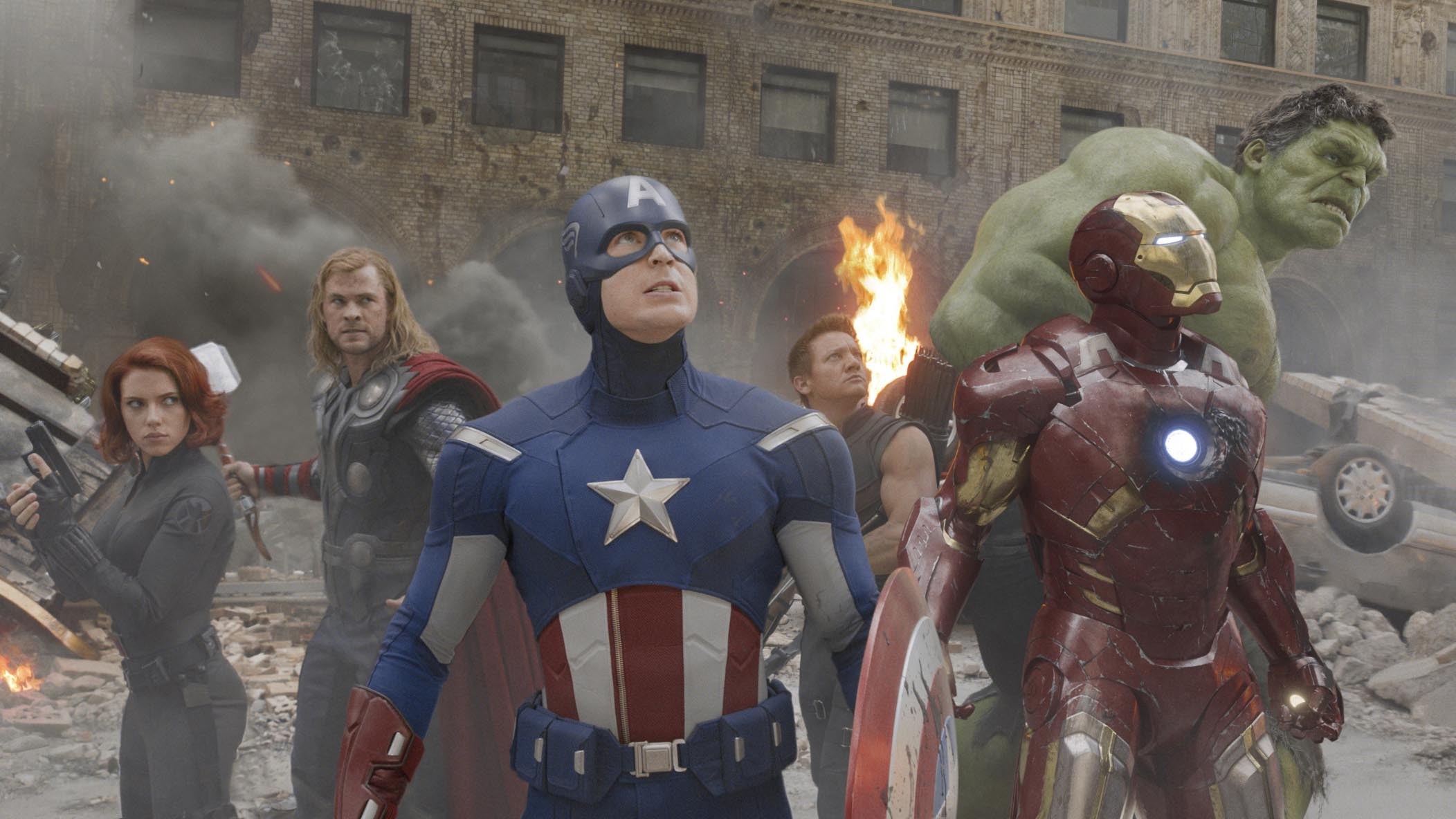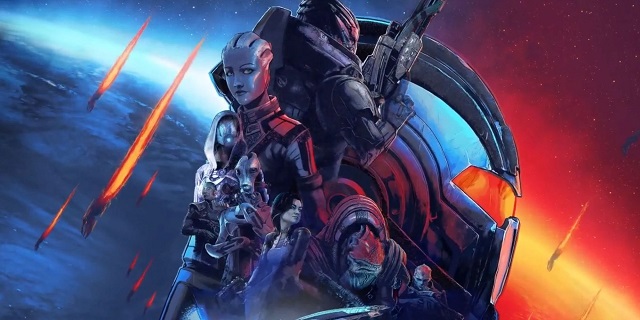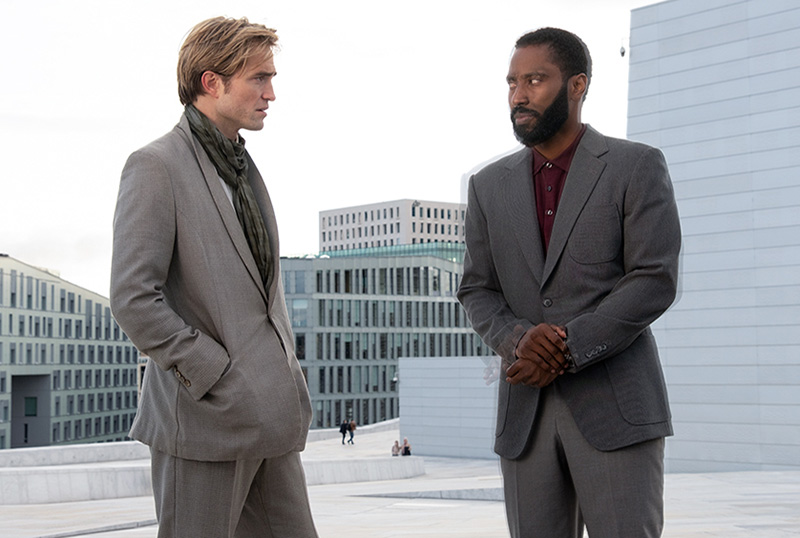There was a point where I was watching Tenet and wondering if I was watching the same film as explained by reviews and fan reactions. The puzzle box of a plot I was expecting wasn’t there. While there are details that were undoubtedly missed on my first viewing, it never felt like I was missing some key piece of the narrative or like I needed to re-watch it several times to truly have a grasp on whatever director Christopher Nolan intended. A part of me wonders if most of the folks talking about it have even watched it because discussions are still centered on it being “impenetrable” instead of a film with a time travel gimmick and people working on different time flows were wearing different color armbands. Nolan and his films spark an intellectual curiosity in viewers, but they refuse to expand outward, instead remaining inward, confined to the film itself and spinning meta-narratives in defiance to abstraction, even if what inhabits the film itself isn’t particularly deep or insightful.
Tenet was a lot of fun, but hardly a mind-bending piece of staggering genius. Instead, it felt like a number of sequences like the bank heist in The Dark Knight with little concern over character development or any sort of depth. Still, people want it to be more than what it is, largely in part because of the movement Nolan helped cultivate where viewers need to decipher every last clue from the narrative to get the “real” meaning of the story, which there is always one true meaning, or else they lack the intellectual bandwidth to understand the genius of said work. Was the spinning top Leo’s totem? Or was it his ring? Watch Inception twelve times with a fine-toothed comb to find out! Broader, open-ended questions can’t take root within this closed loop.
Of course, Nolan didn’t create humanity’s desire to have definitive answers to everything, nor did he and his brother create the concept of piling as much information into a piece of work to leave no stone unturned. J.R.R. Tolkien’s Silmarillion is a work that exists and remained overlooked by publishers until his passing and the subsequent popularity of The Lord of the Rings books, where there was a comprehensive history of Middle-Earth, its lore and went further to build out the world for the most ardent of fans. Dungeons and Dragons players can attest to games going as little as three hours, but knowing the proper games sprawl out over dozens of hours with every detail codified with painstaking detail.
It’s nerd culture, and what was once unique has become ubiquitous.

Comic book lore and fantasy/science fiction world building have been the gold standard for these “nerd” properties for as long as there was a market, but they kept to the fringes for the hardcore fans or those who moonlit as nerds in their downtime. Obsessing over minor Star Wars characters was once a badge of honor, now some of those fan-favorite characters have become money generators in the age of nerd culture’s time in the sun. Marvel has monetized characters like Ant-Man and Dr. Strange, on top of creating a “cinematic universe” spanning multiple shows and dozens of films in service of said “universe,” enhancing the whole through lore and world building. Sure, you could find yourself invested in Avengers: Infinity War and Endgame without watching Ant-Man or the latest iteration of Spider-Man, but imagine how much better those characters’ moments hit after you’ve spent an additional block of hours with them?
This need for completion—for total understanding—has become big business and the norm. After the popularity of the Lord of the Rings, the rather small single volume of The Hobbit, a children’s book, found itself chopped up and stretched out into its own epic trilogy filled with immense battle scenes and new characters. Amazon is producing an expensive television series about it. Loved Game of Thrones and how thorough George R.R. Martin has been about that? Don’t worry, there’s a prequel series coming to HBO even though Martin hasn’t finished the mainline books yet. And if one of these properties has an unsatisfactory ending that fans don’t feel aligns with the lore or world building they’ve obsessed over? Look no further than the reaction to the last season of Game of Thrones. I’d argue the last few seasons of Game of Thrones felt stilted and poorly written in general, but the series grew into a goliath that could meet no one’s expectations considering the writing team’s experience and the fan reaction was brutal.
Fans want answers to everything. Definitive versions of what they love to get a sense of completion. I’m excited to return to the Mass Effect series with the remastered edition’s recent release, but fan expectations helped to sully the series almost beyond repair. The incessant need for closure compounded with the J.J. Abrams style “mystery box” storytelling he baked into the series Lost, mixed in with this need for definitive answers, has led to a moment in popular culture where there’s no room for reflection on storytelling. A character in the MCU reflects on the dust of a fallen comrade not to ponder the futility of existence, but because people have emotional reactions to bad things happening. If we didn’t get that moment of reflection, how would we know to be sad? The four other films where those characters exchanged quips won’t matter as much if they don’t have that moment, right?
Does that sound cynical?

Let’s go back to Mass Effect, whose ending angered fans in such a profound way they forced the developer to release a “director’s cut” of the ending that was more concrete and less abstract. It upset fans with the abstraction of the ending, many citing their disdain for “magic in space.” They’d spent dozens of hours as Commander Shepard and there had to be a reason for all of it, right? It almost ignores the melancholy tone and atmosphere of the entire third game, where our intrepid heroes are in a race against time to stop these mysterious Reapers in their plot to destroy the galaxy, but the game itself was far more reflective than that. Sure, there were datapads around every corner describing the Reapers, their indoctrination, and history, but there was also a very real theme of “man” against nature, the questions of existence itself and a reflection on the Reapers’ and their methods to how us, the actual people in the real world, act in the name of progress and treat other people.
The problem is they buried those themes under loads of lore and world building, the stuff people find easier to grasp onto and fall in love with. To reflect on those problems means to not have a jigsaw puzzle laid out before the viewer, instead just open questions without solid answers. So while viewers are conditioned to think Christopher Nolan is an auteur director and writer who crafts meticulous experiences and would never produce something disappointing or lacking in some areas, the threadbare plot and characters won’t show through. Because there’s a wink or a nod early on. Bad dialogue mixing? That’s not on Nolan, that’s on the viewers for not stretching their brains out to imagine the director giving some audible clue to a theory that may or may not be true, although it literally doesn’t matter to the plot of the film.
Being overloaded with raw information and stimuli is a feature of how this generation consumes media. This coincides with humanity’s long struggle to understand everything and wrap ourselves in the flag of logic and reason to explain our everyday struggles. Our art and entertainment serve as a reflection of this need for answers and a way to parse the deluge of information at our disposal while refusing to engage it in a non-critical manner. Criticism comes from not just understanding, but emotion and experience. The more our art and entertainment play to just this idea of understanding, with emotion and experience taking a backseat to or only there as set-dressing, the further we can collectively slip away from ourselves.
A game series like Mass Effect presented gamers with a few branches at the end, which some saw as a betrayal of the series’s many choices. Shepard, gravely injured and pushed to the limit, has an experience with something Shep doesn’t quite understand but knows there is a choice to make. The television series Lost was built on Abrams’s mystery box idea, but there were too many threads, too many characters and too much the writers wanted to say, so they chose an abstraction. Inversely, when Game of Thrones tried to tie everything together in a neat bow, what was an inevitable, depressing, and somewhat open-ended ending came. This drove fans to petition for a better ending and has seemingly tied the hands of George R.R. Martin to where he’s unsure of how to continue writing his series knowing the weight of every decision and the fervor of the fans.

Our entertainment and popular art has taken the hardline stance that there needs to be more of everything. No stone should ever be left unturned, metaphor be damned. We’ve somehow still refused to see a film like Citizen Kane for what it is, even with the release of Mank, a dramatized fiction about the writing process behind Citizen Kane, that plainly explained it was a film about a wealthy man who had everything he could ever buy, but lost his humanity and sold out his people in the process of. Instead, people keep asking the question that the film’s narrative used as its framework: why did he say “Rosebud” when he died, and what does it mean? Hollywood today would create a Citizen Kane 2 centered on Kane’s missing sled and uncovering his fond childhood memories so everyone could say “see, he was happy as a kid because he had his mom and his sled, not just money!” An observation that a viewer could come to by watching Citizen Kane and asking themselves some questions afterward and reflecting on the experience.
Instead of taking a series like Twin Peaks and reveling in the absurdity and abstraction, someone will always come along with a four-hour-plus video called “Twin Peaks ACTUALLY EXPLAINED (No, really),” where the presenter sits and presents his theory as a definitive take because, look, it’s all right there in the text, right? Well, sort of. Probably not. Somehow breaking down an expansive work into a YouTube video to explain “David Lynch thinks television is evil,” while ignoring thematic elements about the lurks beneath the surface of idyllic small towns and the part they play in systemic abuse, even with four hours and thirty-five minutes of explanation, feels flippant and ridiculous.
Meticulous detail, lore, and world building is a tremendous feature that can help expand our understanding and relationship with a piece of work. When done well, it can be astonishing and rewarding. It still does not replace the need for coherent storytelling and weaving meaningful metaphors into work. Being able to look deeper into a world will be something that reverberates beyond this movement in film, television, fiction, and entertainment at large, but hopefully without being such an inward, stifling crutch purporting to have definitive answers to big questions. The last thing any of us need is someone else telling us what to think or feel instead of letting us explore the work we love ourselves and determine how it made us feel while taking those cues from the creators as guides along our journey, not going along for their ride but creating our own within their worlds.
Dave Walsh is an author responsible for a pile of science fiction novels and co-creator of the ongoing satirical wrestling web series, SCFL Pro. Find out more at dvewlsh.com.










